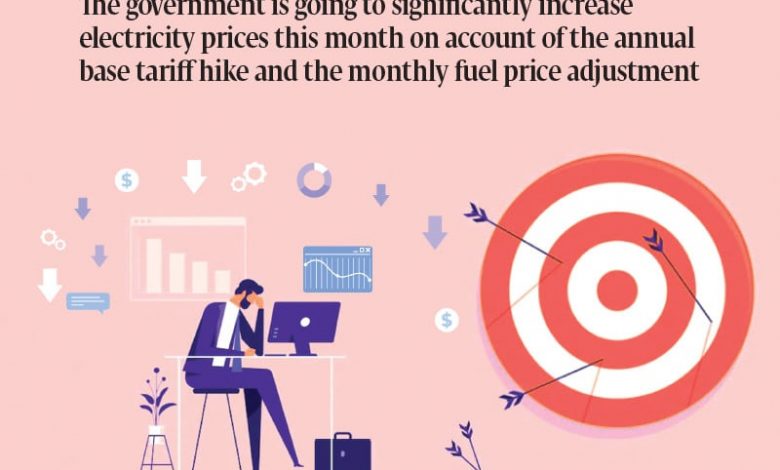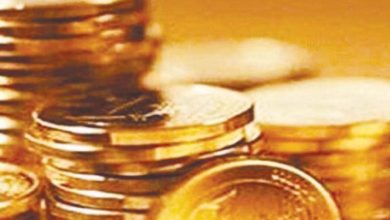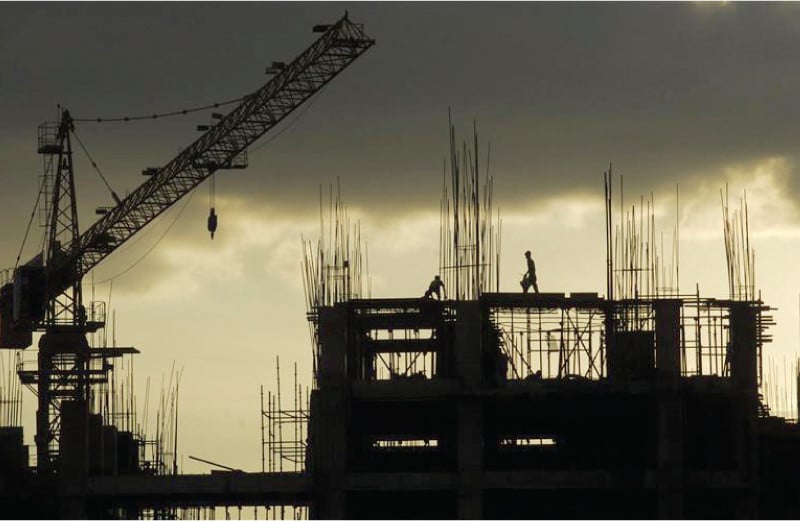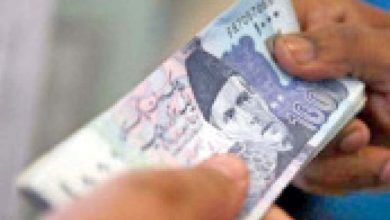Govt misses annual inflation target

Despite inflicting heavy losses on the economy by keeping interest rate at a record high, the government and the central bank missed the annual inflation target of 21%, which stood at 23.4% in the just-ended fiscal year.
As the unbearable inflation in fiscal year 2023-24, which ended on Sunday, was not enough, people were bracing for another round of inflation from Monday in the shape of increase in prices due to the imposition of new taxes.
FrieslandCampina on Monday increased the price of its brand Olper’s milk by Rs75 per litre, or 25%. The price went up after the government imposed 18% sales tax, 4% further tax and 2.5% tax on the unregistered retailers.
As against the old retail price of Rs295 per litre, the company has fixed the price at Rs370 per litre. Olper’s has a 40% market share.
In his post-budget press conference in mid-June, Finance Minister Muhammad Aurangzeb said that the middle and upper middle classes could afford to pay sales tax on the packaged milk.
Pakistan Bureau of Statistics (PBS) reported that the Consumer Price Index (CPI)-based inflation rate stood at 23.4% in the just-ended fiscal year, which was higher than the 21% target set by the federal government for the State Bank of Pakistan (SBP).
In order to chase the 21% inflation goal, the central bank kept the interest rate at a record high of 22% almost throughout the fiscal year. It inflicted heavy losses on the economy by slowing down the economic wheel, increasing the cost of working capital for businesses and becoming a reason behind the Rs8.3 trillion debt servicing cost in fiscal year 2023-24.
There is a need to amend the SBP Act to fix responsibility on the central bank for missing the inflation target, as under the current law there is no such penalty. Price stability is the core objective of the SBP and economic growth is its secondary goal.
The average inflation rate in urban areas came in at 24.12% while it was 22.41% in villages in the last fiscal year, according to the national data collecting agency.
For the new fiscal year, the government has set the inflation target at 12% but the International Monetary Fund (IMF) expects the CPI to stay significantly higher than the official goal.
On an annual basis, the inflation rate in June accelerated to 12.6%, which was in line with the Ministry of Finance’s forecast.
The government has imposed heavy income taxes on the salaried and non-salaried individuals to create space for higher spending on parliamentarians, the presidency, the National Assembly, the Prime Minister’s Office and the bureaucracy.
This will substantially reduce the take-home salary of the people in addition to the heavy cost that they will bear in the shape of higher prices of essential goods.
PBS data showed that food inflation again accelerated in cities and the rural areas. In urban centres, there was an increase of 2.6% in food inflation and it rose 1.3% in villages and towns.
The non-food inflation rate in urban areas increased to 24.3% and to 17.9% in rural areas.
The government is going to significantly increase electricity prices this month on account of the annual base tariff hike and the monthly fuel price adjustment. The increase in electricity prices is a prior condition of the IMF for a staff-level agreement.
Power distribution companies are also caught fleecing consumers by overcharging and inflating the actual electricity consumption. Companies like the Islamabad Electric Supply Company have indulged in this illegal practice.
Core inflation, which is calculated after excluding energy and food items, slightly slowed down to 12.2% in urban areas. It remained unchanged at 17% in rural areas. The average core inflation was almost 6% lower than the policy rate.
In fiscal year 2023-24, the inflation rate for the housing, water and electricity group jumped over 35%, which is now a major expenditure for the households. Gas prices were 318% higher in the last fiscal year, followed by a 67% increase in electricity charges.
Even in the month of June, the electricity charges increased 8.1%, according to the PBS. Traders on Monday organised small-scale processions against the growing cost of electricity.
Transport services became expensive by 35.3% in the last fiscal year. In the food group, onion prices were 100% more than the preceding year and tomatoes were expensive by 69%. They were followed by 38% increase in prices of fresh vegetables, 31% in prices of fish and 20% in prices of meat and beverages.
However, wheat and wheat flour prices fell 30% in the last fiscal year, followed by a 21% reduction in the rates of chicken and 16% in the prices of cooking oil.
However, in the budget, the government has imposed 18% taxes on the import of fruits and vegetables from Afghanistan and 10% taxes on poultry feed – the costs the consumers will pay this fiscal year through higher prices.





